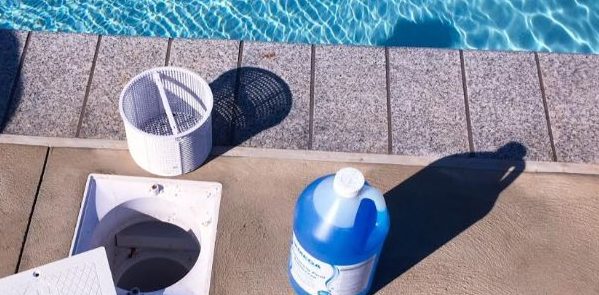Tips for Handling Pool Chemicals
It’s important for all lifeguards to be well informed and confident around chemicals. In some states lifeguards may be asked to regularly test the water quality and adjust the chlorination. That’s why all lifeguards are required to take the OSHA Chemical Handling webinar. This training teaches lifeguards how to safely work around chemicals that could be potentially hazardous. The OSHA training goes into detail on how to safely handle chemicals, but there are seven general rules that all guards should know.
General Tips for Handling Chemicals
- Wear protective equipment. It’s important to utilize protective gear like safety goggles and chemical resistant gloves. They may not be the most fashionable accessories, but wear them anyway! They protect you from potential long-term injuries. You only have one set of eyes and one pair of hands. Protect them!
- Read the label. Before using a chemical, read the product label and the safety data sheet. After reading the label, be sure to handle the chemicals in a well-ventilated area.
- Open carefully. Use caution when opening containers to avoid splashing or generating dust. Additionally, only open ONE product at a time.
- Dedicate equipment to ONE pool chemical. Equipment like scoops, buckets, crocks, and lids should always be dedicated to a specific chemical. Once equipment is assigned to a designated product, do not use it for any other chemicals.
- Never mix! Mixing chemicals with each other could result in fire, explosion, or release of toxic fumes.
- Never add water to pool chemicals. Adding water to pool chemicals could potentially cause a violent, explosive reaction. Instead, add the pool chemicals to water.
- Wash your hands! Always, always, always wash your hands after handling pool chemicals. Even though you wear gloves when working with these products, you still need to wash your hands afterwards to be extra safe.
What to Do When a Chemical Spill Happens
Even if you take all of the necessary precautions, accidents happen. If a chemical spill occurs, it’s important to respond immediately.
Make sure that you are aware of your location’s emergency response procedures so that you’re able to quickly implement the plan in the case of an emergency. The emergency response plan will likely cover the spill cleanup procedure, chemical incident and exposure response, chain of command and alternates with contact information, an evacuation plan, and a communication plan for alerting patrons, staff, and emergency responders. If an incident does occur, make sure that it is properly reported and documented.
Understanding how to safely handle chemicals can prevent chemical related injuries. It’s also important to understand chemical spill response procedures so that you’re able to safely and confidently handle the situation if there’s ever a spill. Please feel free to reach out to your supervisor to ask any questions you may have about handling chemicals and responding to spills. It’s best to have the knowledge before an incident occurs. You can find your local office’s contact info here.

